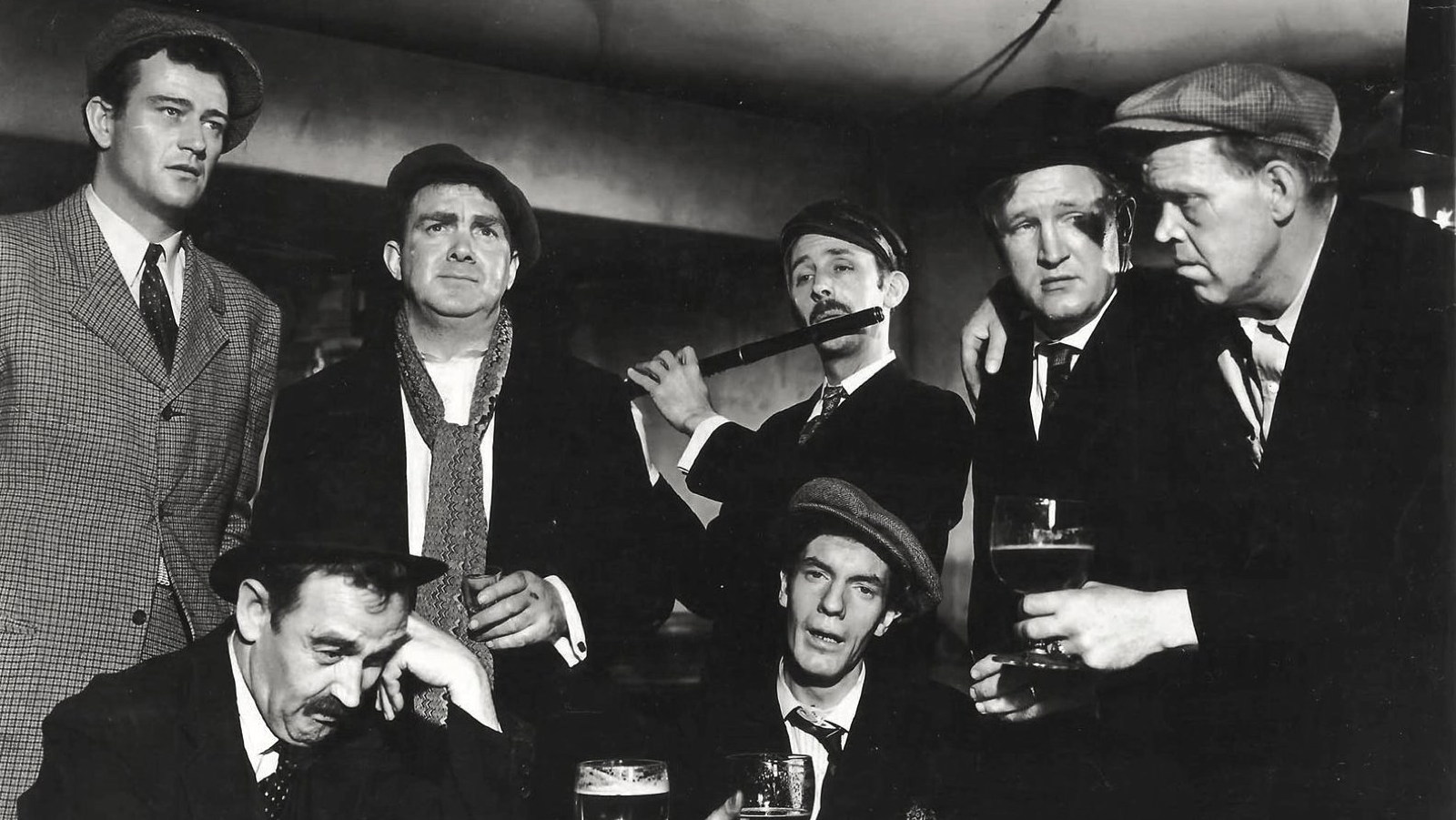A Modern Odyssey
When asked by Jean Mitry in 1955 to list his favorite films among the ones he had directed, John Ford included The Long Voyage Home (1940) among a handful of titles. At the time of its release, John Mosher wrote in The New Yorker that this was “one of the most magnificent films in film history.” Eugene O’Neill considered it to be the best adaptation of his work. He liked it so much, he owned a personal print and regularly screened it. Yet The Long Voyage Home is probably the least known of Ford’s greatest films.
One reason is the poor quality of the prints regularly shown on television. This was the film that cinematographer Gregg Toland worked on just before Citizen Kane (1941). It features comparable deep-focus shots and contrasts in lighting, as well as extraordinary shadows that move and extend across the screen. With a poor quality print, you lose the visual tones Toland strived to create. Fortunately, the print Turner Classic Movies has shown recently is better. It still falls short of what it could be, but you can see much of what impressed the critics back in 1940.
One of those critics was Bosley Crowther, who wrote this in the New York Times:
John Ford has truly fashioned a modern Odyssey—a stark and tough-fibered motion picture which tells with lean economy the never-ending story of man’s wanderings over the waters of the world in search of peace for his soul. It is not a tranquilizing film, this one which Walter Wanger presented at the Rivoli Theatre last night; it is harsh and relentless and only briefly compassionate in its revelation of man’s pathetic shortcomings. But it is one of the most honest pictures ever placed upon the screen; it gives a penetrating glimpse into the hearts of little men and, because it shows that out of human weakness there proceeds some nobility, it is far more gratifying than the fanciest hero-worshiping fare.
This is very much an ensemble piece with outstanding performances from Ford’s stock company of actors, including Thomas Mitchell (as Aloysius ‘Drisk’ Driscoll), Barry Fitzgerald (as Cocky), John Qualen (as Axel Swanson), and Ward Bond (as Yank). Most notable is John Wayne’s performance as Ole Olsen, the good-hearted Swede who keeps trying to return home to the family farm — but always ends up signing on again. The role is the opposite of Wayne’s usual swaggering persona, and he is surprising good in the part.
Dudley Nichols wrote the screenplay based on four early O’Neill plays about life at sea. Both Ford and O’Neill had Irish backgrounds, and they share a strong sympathy for the downtrodden. Toland’s moody photography and O’Neill’s tendencies toward pessimism are perfectly balanced by Ford’s inherent optimism. Much as he took the hard edge off Steinbeck’s The Grapes of Wrath filmed that same year, Ford explores the depths of human deprivation in The Long Voyage Home without losing faith in the essential goodness of human nature.
The Long Voyage Home
(1940; directed by John Ford)
Warner Home Video (DVD)
Saturday, September 3 at 2:00 p.m. eastern on Turner Classic Movies
Reviews